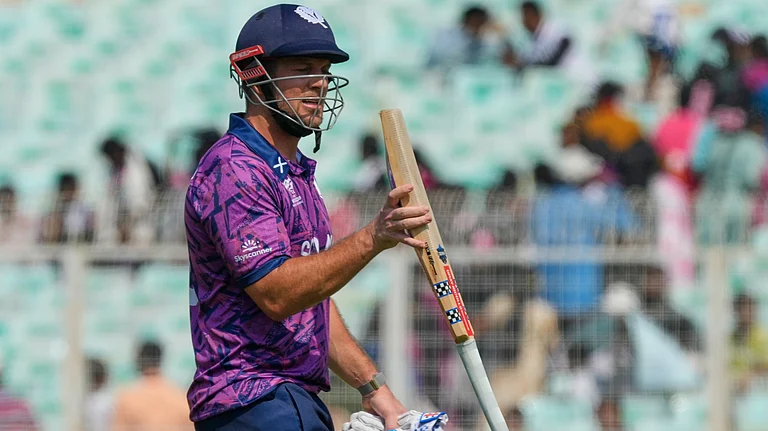One might perhaps best approach The Future of Pakistan as one would an Agatha Christie novel. Read the opening chapter (Stephen Cohen’s comprehensive review of his own ideas and those of the other participants in the 2010 Bellagio workshop, and some others’, whose papers comprise the intermediate chapters) to find out who’s been murdered and where. And the last chapter, also by Cohen, in his capacity as this volume’s Hercule Poirot, to discover Who Did It and Why, systematically elucidating the various options and finally zeroing in on the suspect. Then, the reader might look in on the in-between chapters as a rich and tempting menu of dishes served up by twenty expert chefs from the US, Europe, Pakistan and India. Not, however, to be devoured at a single sitting but savoured over several meals.
The exercise essentially boils down to suggesting that several things might happen over the next few years in Pakistan—or that, just possibly, none of them will. A rather foggy crystal ball, for Pakistan’s future is as ambiguous and confusing as its past. The existential dil-emma appears to be that while Pakistan is not a “failed state”, if an ill-governed one, it has since its birth been a “failing nation”. Cohen in his afterword cites my favourite analysis of Pakistan, Farzana Shaikh’s Making Sense of Pakistan, who argues that while Pakistan is emphatically not a “country on the brink”, it is a nation without “a national purpose, notably the ambiguous but generous role accorded to Islam since 1947, which has restricted its progress ever since”.
My own view is that while Islam is what unites Pakistan, it is Islamisation that divides it—for, as Omar Khayyam wrote, “the two and seventy jarring sects confute”. Islamisation of the Zia-ul-Haq variety has only led to Pakistani communalism transforming itself from anti-Hinduism into vicious internecine sectarian rivalry, adding to the equally blood-letting ethnic rivalry among the various linguistic communities, thus calling into question its very nationhood. Pakistan being, as Cohen notes, a quintessentially South Asian nation, however strong the pull of West Asia, it is only as a nation that builds its unity on diversity, rather than by imposing unity through uniformity, that it can become a nation with a “national purpose”. Till that happens, it is the Pakistani state that remains the sole guarantor of the continuance of the Pakistani nation.
Cohen and most of his companions come to the conclusion that, doomsday scenarios notwithstanding, such as those portrayed by Benedict Anderson, whatever the failings of the Pakistani state, especially the unhappy role played by the military in its governance, it is the “establishment-dominated” state (Cohen’s phrase from his earlier The Idea of Pakistan) that ensures a future for Pakistan. That future would be much brighter if in place of the timid and transient “transformations” attempted by successive military and civil administrations, swinging between army-style authoritarianism and political bungling (brilliantly recited by Cohen in his opening chapter), the truly transformative one is undertaken of making Pakistan a fully participative democracy, Islamic in principle but pluralist in practice. That alone would cap, reverse and finally end the “failure of the economy, political incoherence, separatism, corruption and the rise of extremists” as the determining elements of Pakistan’s future.
It is the consensus of virtually all the contributors that for a pluralist democracy to stand a chance of taking root in Pakistan, the transformation of the India-Pakistan relationship is an essential prerequisite. The responsibility by no means rests on Pakistan alone. Cohen is as unsparing in his criticism of the intransigence of South Block (which houses PMO, MEA and Defence) as he is of the Pakistani military’s paranoia for the stagnation lurching towards crisis in the India-Pakistan relationship. On the one hand, there are the many social, political, military and even ideological imperatives, spelled out by Cohen and his colleagues, which point to an evolving change in the Pakistani mindset regarding the possibility of Indo-Pak reconciliation. Again and again, contributors to this volume almost stumble upon the growing realisation in all but the most extreme sections of Pakistani opinion that a reasonable modus vivendi with India would much better serve Pakistan’s long-term interests than barren confrontation. On the other is their clear articulation of the hurdles they see as insuperable in the way of achieving this consummation.
The choice is really up to India, for if hope is no substitute for policy, as former US secretary of state George Schultz is quoted as once having told Cohen, so also is despair no substitute, as a Pakistani diplomat retorted when Cohen passed on this remark. The velocity of change in mindset in much of Pakistan is greater than in most of India—for neither is the nature of our nationhood nor are the institutions of our state as tied in with the Indo-Pak relationship as they are in Pakistan. If public and parliamentary opinion in India were awakened to the immense benefits to our security, our development, our standing in the world and even the consolidation of our secular nationhood of putting behind us six decades of unremitting hostility, and the elimination of the dangers for India arising out of either the Talibanisation or break-up of Pakistan (clearly seen by the Indian intelligence expert, B. Raman, in his contribution to this volume), the stage would be set for the current “composite dialogue” to be restructured as “uninterrupted and uninterruptible”. This phrase has been picked up and frequently reiterated by the present Pakistan foreign minister since this book went to the press. This alternative thrust to the ongoing on-now-off-now dialogue remains the unwritten chapter of this otherwise penetrating analysis of all that bodes well and ill for our neighbour—and ourselves.
























